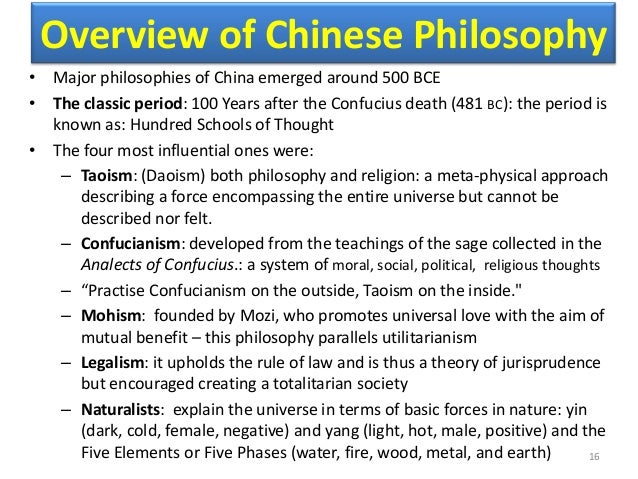
Chinese Philosophy refers to any of several schools of philosophical thought in the Chinese tradition, including Confucianism, Taoism, Legalism, Buddhism and Mohism.
This school was developed from the teachings of the sage Confucius (551 - 479 B.C.), and collected in the Analects of Confucius. It is a system of moral, social, political, and quasi-religious thought, whose influence also spread to Korea and Japan.This school was developed from the teachings of the sage Confucius (551 - 479 B.C.), and collected in the Analects of Confucius. It is a system of moral, social, political, and quasi-religious thought, whose influence also spread to Korea and Japan.

Mohism was founded by Mozi (c. 470 - 390 B.C.) It promotes universal love with the aim of mutual benefit, such that everyone must love each other equally and impartially to avoid conflict and war.
Sometimes also written Daoism, Taoism is a philosophy which later also developed into a religion. Tao literally means "path" or "way", although it more often used as a meta-physical term that describes the flow of the universe, or the force behind the natural order.
Legalism is a pragmatic political philosophy, whose main motto is "set clear strict laws, or deliver harsh punishment", and its essential principle is one of jurisprudence.